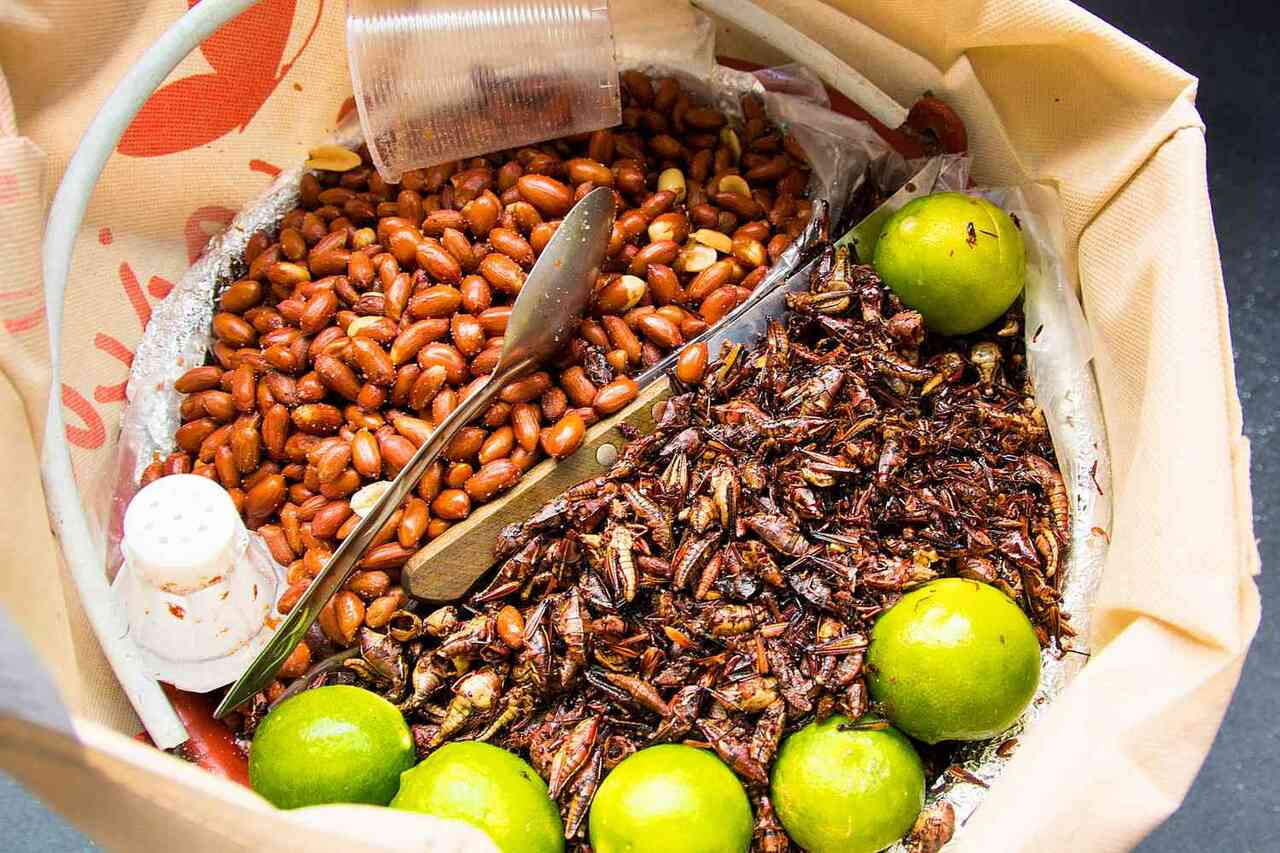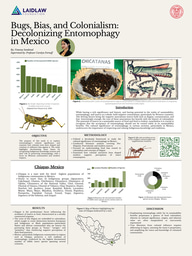Project Outline: Indigenous Perspectives on Entomophagy and Decolonizing Narratives

Project Supervisor
Carolyn Fornoff
Assistant Professor, Latin American Studies
Background:
This project is an investigation of the cultural practice of eating insects in Mexico that exists at the intersection of food studies, environmental studies, and cultural studies. Insects are a healthy and sustainable source of protein, and yet in many parts of the world, eating insects is taboo.
Professor Fornoff aims to better understand the science behind entomophagy: how it might help combat world hunger and reduce carbon emissions. She also aims to study entomophagy as a cultural practice in Mexico, by looking at colonial texts that describe pre-Columbian traditions of insect eating, as well as by looking at how insects continue to play a central role in Mexican culinary arts today.
In a 6-week research project, I will explore sustainable anthropo-entomophagy with a focus on
Indigenous communities. My objectives encompass understanding the colonial history's impact on insect food avoidance and exploring ethnoentomological knowledge, as it comes to play in the light of environmental justice. Crucially, I aim to emphasize the role of Indigenous communities and decolonize narratives around insects as a vital step in addressing climate change and environmental justice.
Methodology:
This summer I will focus on completing literature reviews and researching contemporary recipes and the communties that correspond to them.
Key Objectives:
1. Historical Insights: Investigate colonial influences on insect food avoidance, recognizing
implications for indigenous communities through literature reviews.
2. Ethnoentomological Knowledge: Examine Indigenous wisdom on a specific edible insect,
integrating literature and potentially engaging with communities for insights.
3. Environmental Justice: Review literature on environmental justice issues related to
entomophagy, considering sustainability and biodiversity conservation, with a focus on
indigenous perspectives.
5. Decolonizing Perspectives: Analyze literature and potentially engage with communities to
decolonize narratives around entomophagy, promoting cultural sensitivity.

Please sign in
If you are a registered user on Laidlaw Scholars Network, please sign in